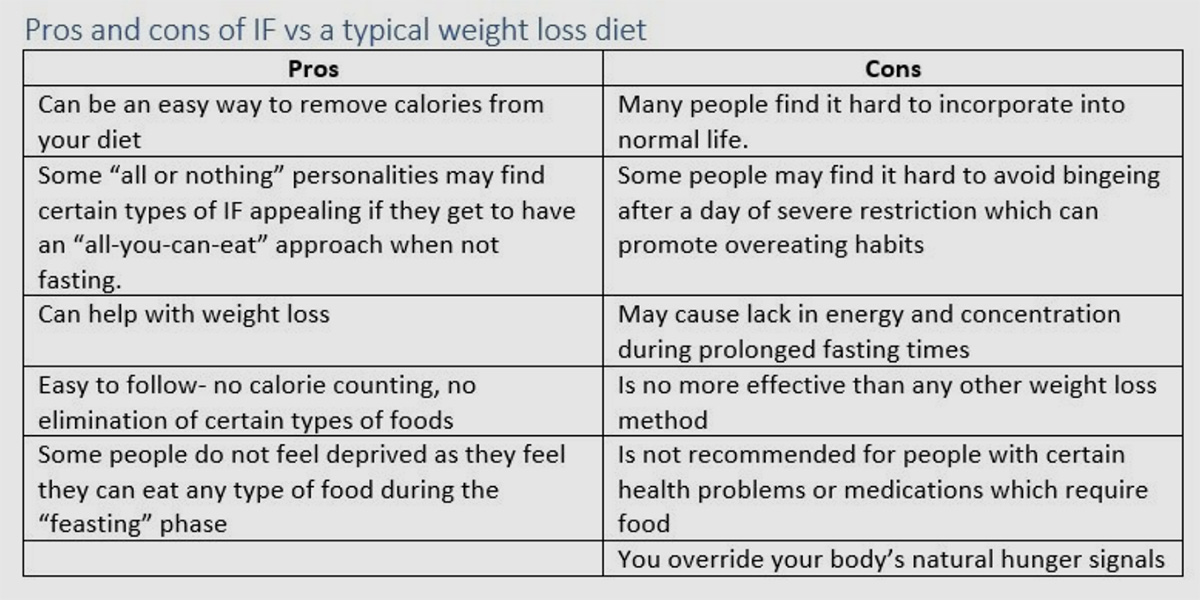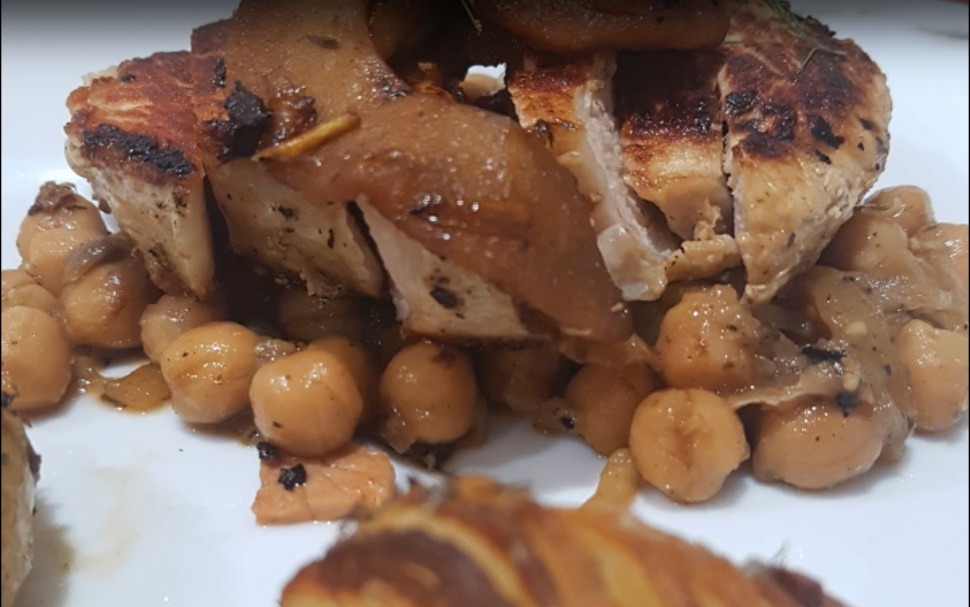Intermittent Fasting
What?
Intermittent fasting (or IF) is when people stop eating for a period of time and then follow this with a period of either “normal eating” or “feasting” where they have no restrictions on the types or amounts of food. There are lots of variations of this diet. For example, fasting for 16 hours each day or the 5:2 where we eat a very minimal amount on 2 days and then eat normally on 5 days.
Why?
The main reason I’ve seen people following an IF diet is for weight loss. People may also try this to increase their metabolism, improve their lifespan and maintain their brain function.
What does the research say?
Unfortunately, there are not many good quality studies to prove whether IF works or not to improve things like brain function and metabolism. A review of the research (1) only found 6 studies looking at IF and weight loss which were of high enough quality to be included. This review found that whilst IF did result in weight loss, there was no significant difference in the amount lost between the IF group and the control group who followed a more typical weight loss diet. This may be because what all weight loss diets have in common is that they give the body less energy/calories than it needs, resulting in weight loss. As research currently stands, there is no evidence that IF has any unique impact on health or weight beyond that of other weight loss methods.

Ultimately, when picking a diet or pattern of eating, what appears to be most important is to pick one that fits best into your lifestyle, personality and makes you feel healthy.
How?
So you want to give it a go? No problem, let’s just make sure your body gets everything it needs to stay healthy.
- Seek advice- seek input from your GP and dietitian to make sure this diet is safe for you and to work with you to ensure you remain healthy.
- Pick a type of IF- e.g. 16:8 (fasting for 16 hours per day e.g. from 7pm to 11am and then eating in the remaining 8 hours), 5:2 (eating a very low calorie diet i.e. 500-600 calories/day on 2 days and then eating normally on the other 5- i.e. no “feasting”) or alternate days (fasting all day on the first day, then eating normally on the next).
- Plan and prepare- it is hard to make healthy food choices when you are hungry. People doing IF are more successful when they have pre-prepared healthy meals and snacks to eat after fasting. This might look like making meals in bulk and dividing up into appropriate portions ready to eat or having some healthy snacks like fruit or nuts on hand.
- Reduce temptation- avoid having unhealthy foods readily available at home or work. When we experience strong hunger and cravings, the convenience of food insight is what often pushes us “over the edge”
- Avoid overeating- the aim during most “eating phases” of IF is not to stuff ourselves silly with food in preparation for the next fast. Rather, we aim to eat normal, healthy portions of food at regular times.
- Variety matters- as with any diet, eating a wide variety of healthy foods (vegetables, fruit, dairy, grains, meat/other) over a week is important to make sure your body gets what it needs. Aim for each meal you eat to be packed full of healthy options.
Reference:
(1) Harris, L., Hamilton, S., Azevedo, L., Olajide, J., De Brun, C., Waller, G…Ells, L. (2018). Intermittent fasting interventions for treatment of overweight and obesity in adults: a systematic review and meta-analysis. JBI Database of Systematic Reviews and Implementation Reports (16) 2, 507-547. Doi: doi: 10.11124/JBISRIR-2016-003248



